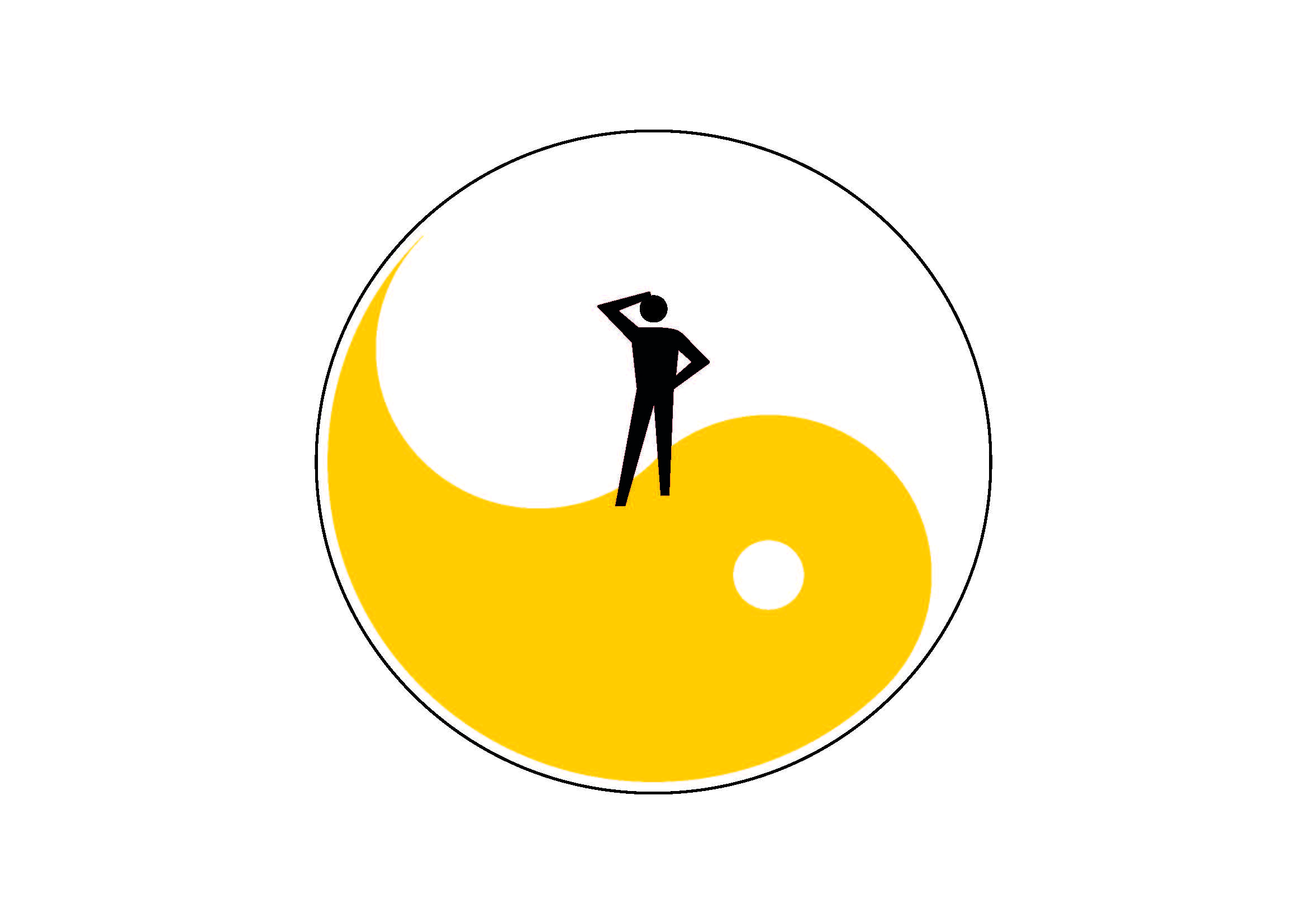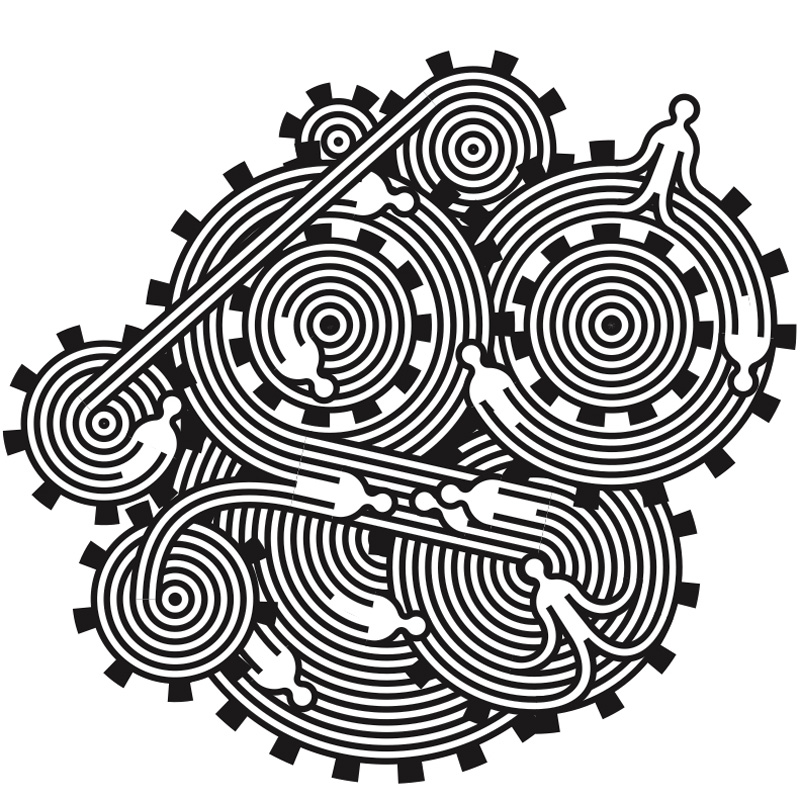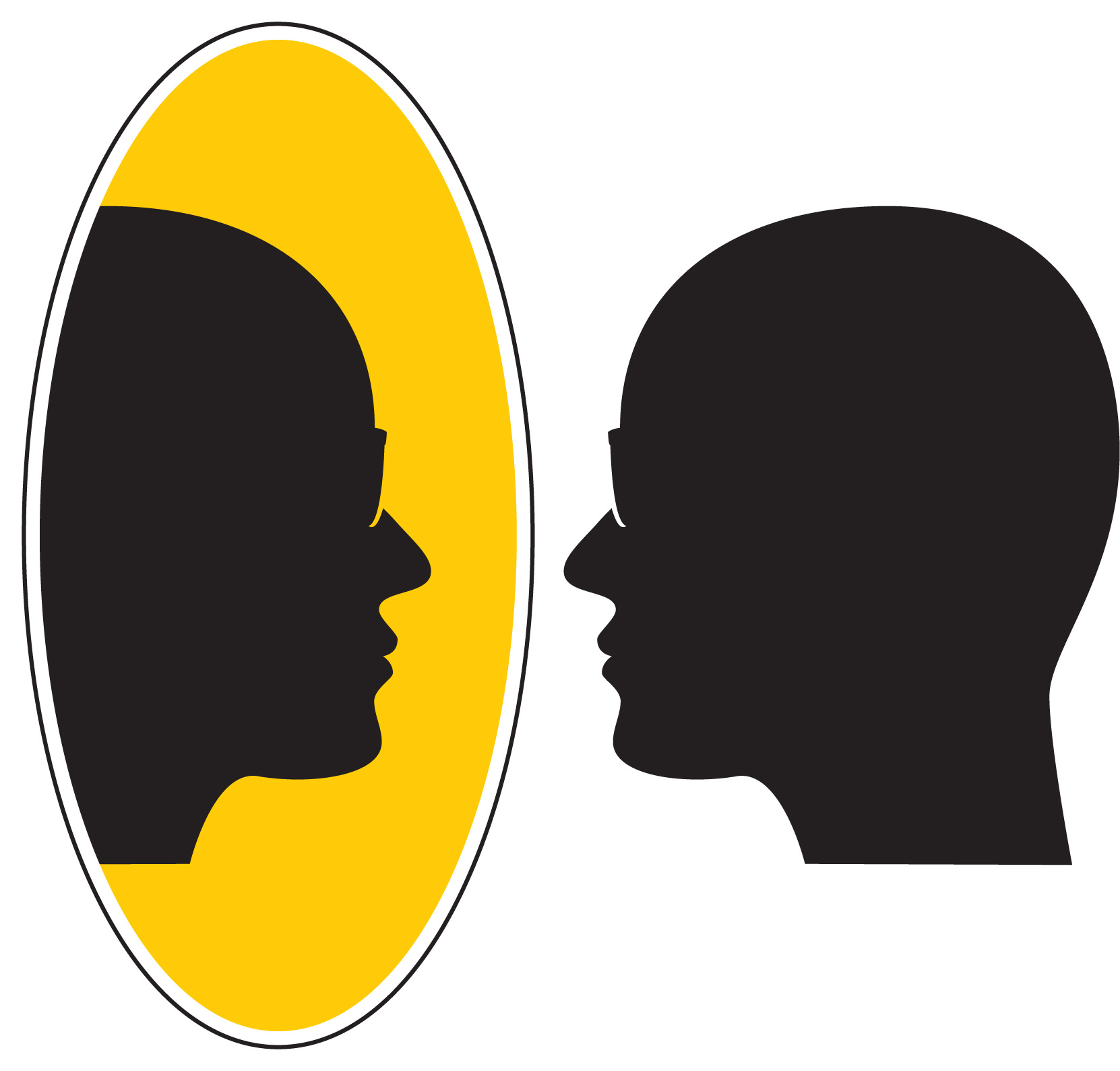Holotopia: The box
Contents
Holotopia: The box
... skipping ...
Convenience Paradox
Themes
Culture, values, pursuit of happiness, religion
Scope
The Enlightenment liberated us to pursue happiness here and now.
Arne Næss was credited for "deep ecology". Also Peccei claimed that "great cultural revival" is the necessity; and that "human development" is the key. Imagine if we could use information to redirect our pursuit of happiness—toward improvement of "human quality"!
What remained obscure, and needs to be illuminated by suitable information, is (1) the long-term effects of our choices and (2) our own ability to feel. How wonderful to see that those two are really two sides of a single coin!
Religion was in traditional cultures a way to overcome the paradox. What can replace it?
Insight
Stories
We built all the technology to make life easier. Yet the heaviest thing we ever lift up and carry around is something we can never get rid of. Could a lion's share of effort and effortlessness be somehow hidden from us there—experiencing life (out there) as difficult, while the difficulty is really IN US? The story is both true in a physical sense, and intended to serve as a parable.
After a couple of years in a monasteryin Bangkok, XY decided "this just cannot be it"! So he decided to go and do as the Buddha did.
25 centuries ago there was a laboratory in the forests of India.
The pursuit of happiness in "The Garden of LIberation" forest monastery is exactly a reverse image of what we have here. Could "Evidence-based| pursuit of happiness" really be so different from our own naive one?
Resolution
Culture as cultivation of wholeness – information based. Informed pubsuit of happiness. Rebuilding culture as environment, which cultivates humans.
Keywords
- Religion
Prototypes
- Liberation book
- Movement and Qi course
Black arrow: NF —> CP
The narrow frame led quite directly to the convenience paradox — by emphasizing direct causality, and eliminating culture. Egocentricity become our value when we learned to consider it as "scientific"; and "natural".
Orange arrow: SR <=> CP
Aaron Antonovky studied the 1/3 of the women who survived the Holocaust but didn't develop the syndrome. What made them different? Sense of coherence.
Art, architecture... always served as a medium for encoding evolutionarily important messages. When we liberate information, and see that implicit information is the key to cultural evolution, we become ready to design it. We don't leave it to the advertising.
Power Structure
Themes
Innovation, democracy, justice and power
Scope
"The whole" here – as illustrated in the above ideogram – is the socio-technical systems we are part of. We see them as large-size 'machines', whose purpose is to take our daily work as input, and turn it into socially useful effects. If in spite of all the time the machines saved us, we still seem to be as busy as ever – should we not look at those 'machines' and see if they might be wasting our time? And if the result of our best efforts are problems rather than solutions – should we not see if those 'machines' might be causing those problems?
The point here is that the systems, or the power structure, determine both our power—what its effects will be; and also the power by which we are subdued and dominated.
Insight
The view – how misconstructed, wasteful, defective, damaging... – our systems tend to be is breathtaking! By innovating "in the light of the candle", we made our gadgets unbelievably effective and smart. How much more spectacular is the sight of the sheer senselessness of our large systems!
We considered calling this insight "The systems, stupid!", which is a paraphrase of Bill Clinton's 1992 successful presidential campaign slogan, "The economy, stupid!". It's not the economy. (The economy is not the solution to our problems—the economy is the problem...) It's he systems! The next winning political slogan (when information is put to use).
Stories
- Thread Chomsky - Harari - Graeber
- Bauman – Holocaust
- Wiener - Jantsch - ?
- Charles Ferguson etc
Resolution
Innovation on the level of large systems. Systemic innovation. Bootstrapping.
Keywords
- power structure
- systemic innovation
Prototypes
- The Game-Changing Game
- The Club of Zagreb
Black arrow: CP —> PS
The egocentricity as value creates power structures. There is no "invisible hand"!
Orange arrow: NF <=> PS
The definition of the power structure concept, of system etc., is the key to change. Systems science is a re-conceptualization of our handling of systems.
... skipping ...
Socialized Reality
Themes
Foundation for social creation of truth and meaning; epistemology
Scope
Two things are hidden: The foundations (they are under the earth); and ourselves. Without the help of a mirror, we believe that what we see is "the reality". Becoming aware of ourselves—of our cognitive biases, and our culture's biases, is what makes all the difference.
Insight
From the traditional culture we've adopted a myth—far more disruptive than the myth of creation—that the purpose of information, and of knowledge, is to tell us "how the reality really is".
Knowledge is NOT reality. It's our own construction. And most importantly—our culture's construction.
The holotopia is on "the reality" other side of the mirror.
The role of the academia is to guide the society to the other side.
Stories
Bourdieu did not travel to Algeria as a sociologist; in Algeria he became a sociologist—by acquiring a core insight, which marked his subsequent career. The insight is how (what we call) socialization organizes the practical life in a society.
More concretely, in Algeria Bourdieu had a chance to witness how the interrogation, the prison and the torture chamber (as instruments of power that were passed on all the way from Galilei's time), which were ubiquitous
This iconic image of the Enlightenment... And his eppur si muove... Let us zoom in on this pivotal moment of our civilization's history. See what it really meant. And what resulted.
Notice first of all that the real issue was not whether the Earth was moving or not. That was just a technicality. Galilei was held in house arrest because of the dangerous meme he was carrying—that when the reason contradicted the Scripture, it might still be legitimate to give the reason the benefit of our doubt
Resolution
Truth by convention takes us through the mirror. The design epistemology empowers us to build.
Keywords
- Culture
- Information; implicit information
- Homo ludens
- Epistemology
- Gestalt
- Dialog
Prototypes
- What's Going on?
- Design Epistemology
Black arrow: CM —>SR
Without federated information—we had no other choice but to evolve as homo ludens.
The Nietzsche–Ehrlich–Giddens thread.
Orange arrow: PS <=> SR
The power structure and the socialized reality are two sides of a single coin. To liberate ourselves from the power structure, we must liberate ourselves from the doxa...
TITLE
Themes
Text
Scope
Text
Insight
Text
Stories
Text
Resolution
Text
Keywords
Text
Prototypes
Text
Black arrow: XX —> YY
Text
Orange arrow: XX <=> YY
Text
TEMPLATE END
- Back to Holotopia




